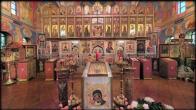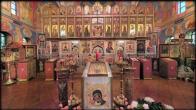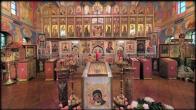You are here
Blessed are the merciful, for they shall obtain mercy
Mercy is an attribute of Divine love and one of man's noblest sentiments. To show mercy means to be Godlike, for He, according to the testimony of the 102d psalm, is compassionate and merciful ... long-suffering and plenteous in mercy. Jesus Christ speaks of mercy in His Sermon on the Mount, as recorded in the 6th chapter of the Gospel according to Luke: Love ye your enemies, and do good, and lend, hoping for nothing again; and your reward shall be great, and ye shall be the children of the Highest: for he is kind unto the unthankful and to the evil. Be ye therefore merciful, as your Father also is merciful (Luke 6:35-36). To show this mercy neither justifies falsehood and sin, nor tolerates foolishness, nor ignores specific injustice. To show this mercy means to have compassion upon people gone astray as captives of sin. It means to forgive those so unrighteous that they hurt themselves as well as others. All people are sinners before God and each another, and they deserve every blame. But the Lord, according to His infinite mercy, forgives and has mercy on repentant sinners, just as the Parable of the Prodigal Son teaches us. If we show mercy to one another, we too shall get mercy from God. Justly the merciful can say the prayer Our Father ... forgive us our debts, as we forgive our debtors (Matthew 6:12). Holy righteous Father John of Kronstadt has written: "For thy mercy to the brethren, thou shalt receive mercy from God; for temporal mercy - eternal mercy; for a little mercy - infinitely great mercy. Thou shalt be worthy not only of pardon because of sins from eternal condemnation at God's judgment, but thou shalt also gain eternal blessedness." (Complete Works, vol. 1, p. 189). Sacred Scripture abounds with sayings about the mercy necessary in man's spiritual life. For he shall have judgment without mercy, that hath showed no mercy; and mercy rejoiceth against judgment, we read in [the Epistle of] the Apostle James (2:13). In his First Epistle, John the Theologian, the Apostle of Love, teaches us: But whoso hath this world's good, and seeth his brother have need, and shutteth up his bowels of compassion from him, how dwelleth the love of God in him? My little children, let us not love in word, neither in tongue; but in deed and in truth (I John 3:17-18). And the Apostle Paul exhorts us thus: But to do good and to communicate forget not: for with such sacrifices God is well pleased (Hebrews 13:16). The Old Testament often mentions the importance of mercy: Blessed is the man that hath understanding for the poor man and the pauper, in an evil day the Lord will deliver him (Psalm 40:1), exclaims the Psalmist. We learn from the wise Sirach that alms make atonement for sin (Ecclesiasticus 3:30), and they deliver from death (Tobit 12:9). Perhaps Jesus Christ's words on the Dread Judgment are his most striking Sacred Scripture about mercy. Christ makes it clear that this Judgment will take no account of our worldly success, because the question for each of us will be How did we serve our neighbor? Christ counts six forms of help to render to neighbors. Identifying Himself - in his love, condescension and mercy - with everyone poor and needing help, the Savior says: For I was an hungered, and ye gave me meat: I was thirsty, and ye gave me drink: I was a stranger, and ye took me in: naked and ye clothed me: I was sick, and ye visited me: I was in prison, and ye came unto me (Matthew 25:35-36). Mercy to the suffering is greater than fasting. The Church reads Christ's words on the Dread Judgment on the Eve of Great Lent, so that the faithful will know that the main Lenten struggle is to have mercy on the unfortunate. For I will have mercy rather than sacrifice (Hosea 6:7). The February 19 readings of Lives of the Saints illustrates this truth: The venerable Dositheus, as he was dying, was bid farewell by the Superior with these kind words: "Child, go in peace to the Lord, and pray for us before His throne!" The brethren of the monastery in which Dositheus struggled were disturbed by these farewell words of the superior, for they knew that Dositheus was not notable either for fasting or for prayer vigils, that he would often be late in coming to the all-night vigils, and sometimes he would not come at all. The Superior learned of this disturbance, and once, during a general assembly of the brethren, he put the following questions to them: "When the ringing of the bell calls me to God's church, and there is a suffering brother in my care, what should I do then? Leave the ailing and hasten to church, or remain in his cell and comfort the brother?" They answered: "In such a case the Lord accepts the help given to a suffering brother as true divine service." "But when my strength becomes weak from fasting, and I am unable to serve the suffering as I ought, should I gain strength from food in order to wakefully look after the sick, or continue the fast, even though through this the sick would suffer?" "Excessive fasting in such a case would not be as pleasing to God as would the solicitous care for the needs of the sick brother," answered the monks. "You have reasoned correctly," the Superior said to them. "Why then did you condemn Dositheus, who, because of the responsibility laid on him to tend the sick, did not always come to the divine service in church and did not always fast as others did? Meanwhile, you yourselves witnessed with what diligence, with what wakefulness he waited on the sick, with what love he fulfilled their demands, which were often capricious! And who among you will say that he ever heard a murmur from him regarding the labors and the fatigue!" Such was Dositheus' divine service; and the Lord accepted him as His faithful and diligent worshiper: for in the person of the suffering brethren he served the Lord Himself. The more a man practices mercy and loves people, the nearer he draws to God; and the more a man experiences the personal Divinity with his heart, the more he loves people. The venerable Abba Dorotheus explains this thus: "Imagine a circle and its middle point, its center; and from the center there extend radii or rays. The further these radii go from the center, the more they diverge and move away from one another; on the contrary, the closer they come to the center, the more they themselves converge. Assume now that the circle is the world. The very middle point of the circle is God, and the direct lines (the radii) going from the center to the circumference or from the circumference to the center are the paths of people's lives. And it is the same here--as the saints progress within the circle toward its middle point, desiring to draw near to God, so they become closer to God and to one another according to the extent of their progression ... in the same manner they can move away from one another; and as they move away from one another, so do they move away from God." Such then is the nature of love. Christian Life According to the Philokalia, page 24). Christ calls His Church to serve the needy and unfortunate rather than the self-satisfied and well-off. Eastern Christian consciousness places the image of the abused and rejected Christ above all else. The Church sees royal dignity through the poverty that He voluntarily took upon Himself. The early Church Fathers repeated the demand to feed the hungry, and to help the sick and the homeless. According to Saint Basil the Great, one can fulfill God's will only by minding one=s fate with the fate of others. For Saint Basil the Great, indifference and individualism were depraved and self-destructive. Even more than Basil the Great, his younger contemporary Saint John Chrysostom, Bishop of Constantinople, preached the theme of mercy. Let us turn to his works: "Almsgiving is the heart of virtue ... it is the queen of the virtues, which quickly leads people to the very height of heaven; it is the best of advocates ... Virginity, fasting, and lying on the bare ground are important only for the one who gives himself up to them, and they save no other person; almsgiving extends to all and embraces the members of Christ (6th Homily on Titus, 2). To do alms is a work greater than miracles... . To feed the hungry Christ is a work greater than raising the dead in Christ's name. In the first instance thou art the benefactor of Christ; in the second He is thy benefactor ... When thou workest miracles, thou art God's debtor; when thou doest alms, God is thy debtor." Saint John Chrysostom believed that social evils start in man's thirst for wealth and they worsen in man's desire to use his wealth selfishly. Saint John Chrysostom says that the only lawful Owner of earthly goods and treasures is God Omnipotent. People must serve the true Owner and manage His property according to His will. According to Saint John Chrysostom, worldly goods are for the needy, the sick, and the orphans. In those who endure pain and who await help, Christ Himself suffers; their torments are His lasting agony. Cries of those suffering from need, Chrysostom tells us, are voices of the crucified Savior Himself. The moral fervor of Chrysostom and his passionate appeal depend on the Church as the living Body of Christ Himself. Ancient [Kievan] Rus' to some, extent lived according to this ideal. It was called Holy Russia. The holy Prince Vladimir, the Equal of the Apostles, under whom Rus' was enlightened with the light of the Christian faith, was a model of mercy in ancient Rus'. Having given a tithe for the upkeep of the church, at the same time he published an edict to care for cripples, the needy, and wanderers at the churches, and to set up poorhouses and hospitals. In his own home on feast days, he arranged dinners for the clergy, nobles, and poor; on especially solemn days, as, for instance, during the consecration of churches, the Prince distributed much money to the poor. The needy and the wretched could freely come to the Prince's palace and take food and drink for themselves. Moreover, for the infirm and the sick who could not come to his palace, Prince Vladimir commanded that special wagons be loaded with bread, meat and other provisions, and he bestowed these things on those unable to come to the Prince's palace. Here is another of Prince Vladimir's works of mercy - During pagan times, as is well known, there were oppressed slaves. Usually such persons were captives of war or weak or friendless people that the powerful could subjugate and sell into slavery. Prince Vladimir, the Equal of the Apostles, put an end to these conditioned and himself ransomed captives and set them free. G. Fedotov pointed out the main thing in the Christian consciousness of Old Russia, before Tsar Peter the Great: Probably, thanks to the Slavonic Liturgy and the Slavonic Gospel, the image of Christ and His commandments of love were deeply etched in the memory and in the heart of the Russian people. Sinning and falling throughout its cruel and bloody history, the Russian people could not ever part with this Divine image. It warmed the people's life, by softening human relations through pity and forgiveness, by teaching them to see in the poor and suffering not only a brother, but also Christ Himself, and by parching their hearts with thirst for another, radiant life, in the fullness of which the behests of brotherly love could be realized. The Christian in the Revolution (Paris, 1957), page 95). Opponents of Christianity insist that Love for God is no selfish striving toward a personal salvation. They may say to show any love for fellow man by improvement of the condition of all humanity. Let us reply that out that sincere love for God and willingness to live according to His commandments is unsuited to egoists. Love for God and membership in God's Kingdom exclude preoccupation with personal salvation. The Christian strives toward renewal of all creation. Concerning this, Saint John Chrysostom wrote: "Let us not be satisfied with seeking our own salvation; that would mean losing it. During a war, in the ranks, if a soldier thinks only about saving himself by flight, he destroys himself and his comrades. The valiant soldier, who fights for others and together with others, saves himself too." (45th Homily on the Gospel of Matthew, chapter 54). As touching social activism, remember that justice and humanity, as well as condemnation of social inequality, all originate in the Gospel. Christian love for man demands personal sacrifice daily and lifelong. The Christian is always alert, for he sees Christ in each man he meets. Each man is not an occasion for a so-called good deed. Instead, each man is revealed, to the Christian, as the beginning of eternal communion with God Himself, a personal communion where the usual forms of human interaction disappear. Desire and will to love a unlovable man only because he represents Christ helps us to recognize that other man's hidden, genuine value. A merciful love of such a man can help even the most depraved man to recall the image of God that may slumber in his heart, so that he can promote his own spiritual rebirth. Otherwise he may linger in spiritual darkness while still well-off in terms of the world. ©Archpriest Victor Potapov, 1992-1993
PARISH LIFE
RECENT VIDEOS
Address of our Cathedral
Subscribe to our mailing list
While all the materials on this site are copyrighted, you may use them freely as long as you treat them
with respect and provide attribution on the Russian Orthodox Cathedral of St.John the Baptist of Washington DC.









